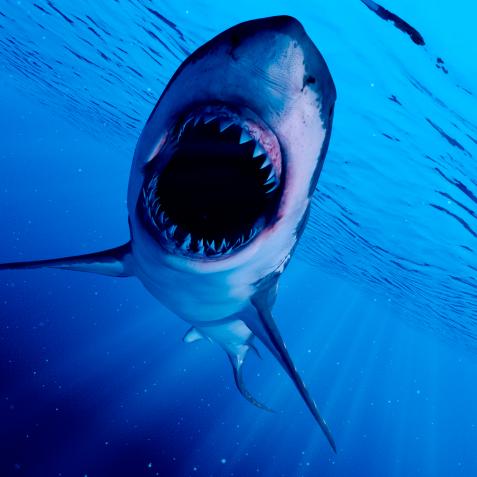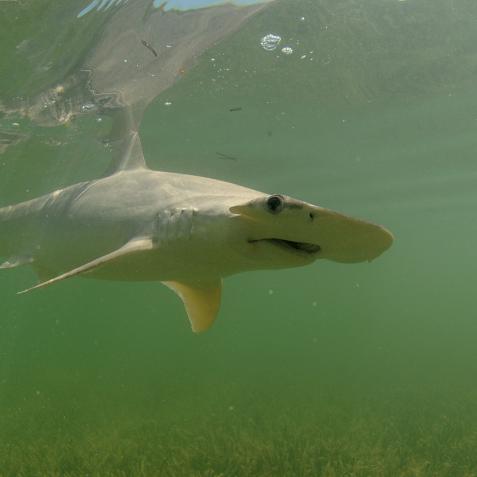
ZRF Photo
A 300 Million Year Old Shark Skull Was Discovered Inside Kentucky Cave

Paleontologists have now found and identified the fossilized remains of around 150 individual sharks from between 15 and 20 different species buried in the limestone layers of the cave.
Around 700 miles from the nearest beach is probably the last place you’d expect to find a giant shark, but that’s exactly what happened recently at Kentucky’s Mammoth Cave National Park.
It’s not uncommon to find shark fossils in the Kentucky region but when cave scientists Rick Olson and Rick Toomey unearthed several shark teeth during a 3D mapping project, and what turned out to be a massive fossilized shark head, they knew they were on to something big. They sent photos to a colleague John-Paul Hodnett who is an expert in Paleozoic (542 to 241 million year old) sharks.
Hodnett went to the cave to see the specimens for himself. "I wasn't exactly sure what I was going to see in the cave during my trip in November,” Hodnett told Emma Austin of the Courier-Journal. “When we got to our target specimen my mind was blown.”
The biggest shark found so far is of the species Saivodus striatus which grew to around 30 feet, bigger than a Great White Shark. Saivodus striatus is a ctenacanth shark, distant cousins to modern sharks and pretty fearsome fish in their own right.
“All ctenacanths bare elongated dorsal spines, similar to those seen in living horn sharks and dogfish” Hodnett explained, the head that we found was from “one of the largest ctenacanths to evolve”. This armored shark was a mega predator and predates the megalodon by hundreds of millions of years. Despite this pedigree they likely had a different feeding strategy as their teeth were more adapted to grabbing than cutting through flesh.
The paleontologists have now found and identified the fossilized remains of around 150 individual sharks from between 15 and 20 different species buried in the limestone layers of the cave. This is exciting for a couple of reasons; sharks are cool, old mega sharks are even cooler, and we now know that this area of Kentucky used to be both underwater (as was much of North America) and home to a very healthy shark population.
"We literally just scratched the surface, and the sharks are just coming out from that scratch," Hodnett CNN. "So, hopefully, with more field work, we'll get another good batch of specimens to kind of help get at least some more rich diversity."



















